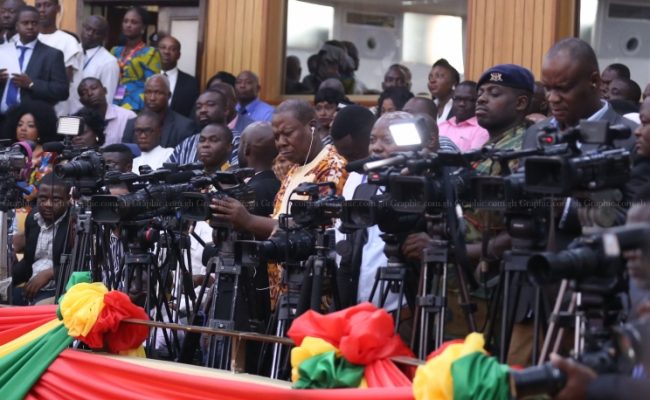Ghana falls 30 places to rank 60th on Press Freedom Index
- Posted on
- Comment

Ghana has dropped 30 places to 60th on the 2022 World Press Freedom Index.
The ranking is Ghana’s third-lowest since Reporters Without Borders (RSF) began publishing the report in 2002.
Ghana ranked 67th in 2002 and 66th in 2005.
This year the index was compiled using a new methodology to take better account of new challenges, including those linked to media digitalisation.
Another change in the data gathering this year was that although the survey stopped at the end of January 2022, updates for January to March 2022 were carried out for countries where the situation had changed dramatically, such as Russia, Ukraine and Mali.
The survey assesses on the basis of a quantitative survey of press freedom violations and abuses against journalists and media, and a qualitative study based on the responses of hundreds of press freedom experts selected by RWB RWB – which includes journalists, academics and human rights defenders.
gHANA aNALYSIS
A country fact file published by RSF said “Although the country is considered a regional leader in democratic stability, journalists have experienced growing pressures in recent years”.
“To protect their jobs and their security, they increasingly resort to self-censorship, as the government shows itself intolerant of criticism. In addition, one-third of media outlets are owned by politicians or by people tied to the top political parties. The content they produce is largely partisan,” the fact file reads.
It adds that journalists’ safety has deteriorated sharply in recent years.
“In 2020, reporters covering the effectiveness of anti-Covid-19 measures were attacked by security forces. And political leaders are again making death threats against investigative journalists. Nearly all cases of law enforcement officers attacking journalists are not pursued”.
Methodolgy
Working with a committee of seven experts from the academic and media sectors, RSF developed a new methodology to compile the 20th World Press Freedom Index.
The new methodology defines press freedom as “the effective possibility for journalists, as individuals and as groups, to select, produce and disseminate news and information in the public interest, independently from political, economic, legal and social interference, and without threats to their physical and mental safety.”
In order to reflect press freedom’s complexity, five new indicators are now used to compile the Index: the political context, legal framework, economic context, sociocultural context, and security.
In the 180 countries and territories ranked by RSF, indicators are assessed on the basis of a quantitative survey of press freedom violations and abuses against journalists and media, and a qualitative study based on the responses of hundreds of press freedom experts selected by RSF (journalists, academics and human rights defenders) to a questionnaire with 123 questions. The questionnaire has been updated to take better account of new challenges, including those linked to media digitalisation.
“In light of this new methodology, care should be taken when comparing the 2022 rankings and scores with those from 2021,” RSF said in a report.
“Data-gathering for this year’s Index stopped at the end of January 2022, but updates for January to March 2022 were carried out for countries where the situation had changed dramatically (Russia, Ukraine and Mali)”.
Ghana’s historical ranking
2002 – 67
2003 – 48
2004 – 57
2005 – 66
2006 – 34
2007 – 29
2008 – 31
2009 – 27
2010 – 27
2011/2012 – 41
2013 – 30
2014 – 27
2015 – 22
2016 – 26
2017 – 26
2018 – 23
2019 – 27
2020 – 30
2021 – 30
2022 – 60
-Graphic






 (Selorm) |
(Selorm) |  (Nana Kwesi)
(Nana Kwesi)